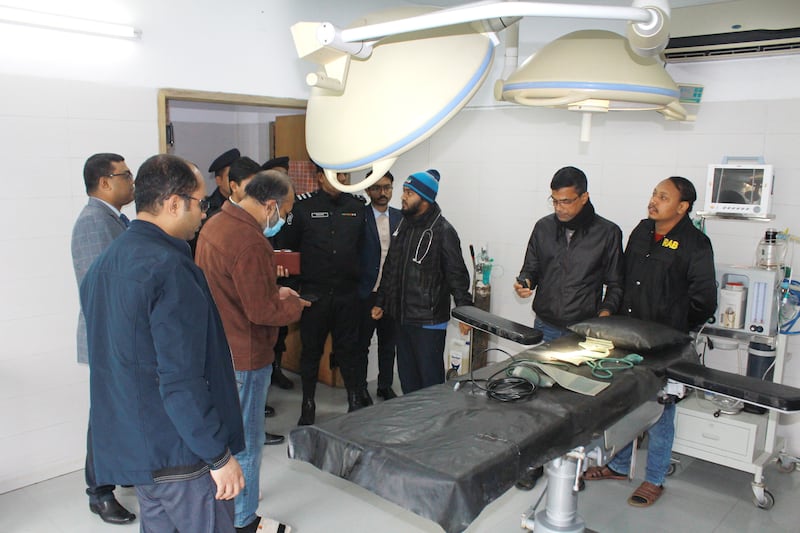Bangladesh’s health department in mid-January began efforts to shut down more than 700 hospitals and clinics operating without proper accreditation, following an order from the country’s new health minister, officials said Thursday.
Samanta Lal Sen, who took office as health minister following last month’s general election, issued the order to close all unlicensed health facilities immediately after the death of a 5-year-old who was undergoing a circumcision under full anesthesia at a hospital in Dhaka.
On Jan. 15, the Directorate General of Health Services (DGHS) sent a letter to the divisional health directors and civil surgeons directing them to submit information of all unregistered hospitals, clinics, diagnostic centers and blood banks.
On the same day, the High Court ordered the directorate to submit lists of authorized hospitals and clinics across the country in a month.
“As per the directions of the High Court, a list of unlicensed hospitals and clinics across the country has been prepared. We have listed more than 1,000 unlicensed, substandard hospitals across the country. Among them, 727 illegal hospitals, clinics, diagnostic and blood banks will be closed across the country,” DGHS director Abu Hussain Md. Moinul Ahsan told BenarNews.
“There are many hospitals and clinics that were licensed five years ago but have not renewed [their licenses]. That is why they have been closed through a mobile court [order],” the health officer said.
He said some of the closed hospitals and clinics never had licenses.
As of Jan. 31, 105 hospitals, 139 diagnostic centers and 74 blood banks were closed in the Khulna division while 70 hospitals, 40 diagnostic centers and 10 blood banks were closed in Dhaka, according to the directorate. Other facilities across Bangladesh were closed as well.
“Running hospitals and clinics without any license is like a fraud while the government is also deprived of revenue,” said Ahmedul Kabir, the DGHS additional director general for planning and development.

Among the facilities closed was Vatara General Hospital and Nursing Institute, a private hospital.
Hospital Chairman Mizanur Rahman said the authorities closed it on Jan. 26 because its license had expired.
“Now we are trying to reopen the hospital by renewing the license. We have no other issues,” he told BenarNews.
Across Bangladesh, the number of properly licensed private hospitals, diagnostic centers and blood banks registered by the directorate are 15,143. As of 2022, about 80% of hospitals in Bangladesh are private, according to ICDDR, B, an international health research organization based in Dhaka.
Regular supervision is required
Analysts said the government would be better served by monitoring unauthorized health facilities on a regular basis rather than force sudden closures tied to a medical incident.
“It is not the job of the Ministry of Health to conduct these raids. If the Ministry of Health does this, their main work will be disrupted,” Rashid-E-Mahbub told BenarNews.
Mahbub, chairman of the Bangladesh Health Rights Movement, urged the government to establish monitors in every district in the country to focus on illegal hospitals and clinics.
“A directorate or department should be formed and these works should be done under it. Otherwise, nothing will work,” he said.
Moniruzzaman Bhuiyan, president of the Bangladesh Private Clinic and Diagnostic Owners Association, said the government’s failure to take permanent effective measures is impacting the private sector health facilities.
“We want illegal hospital clinics to be under regular surveillance so these raids do not have to be carried out every few days. There are serious negative impacts,” he told BenarNews.
